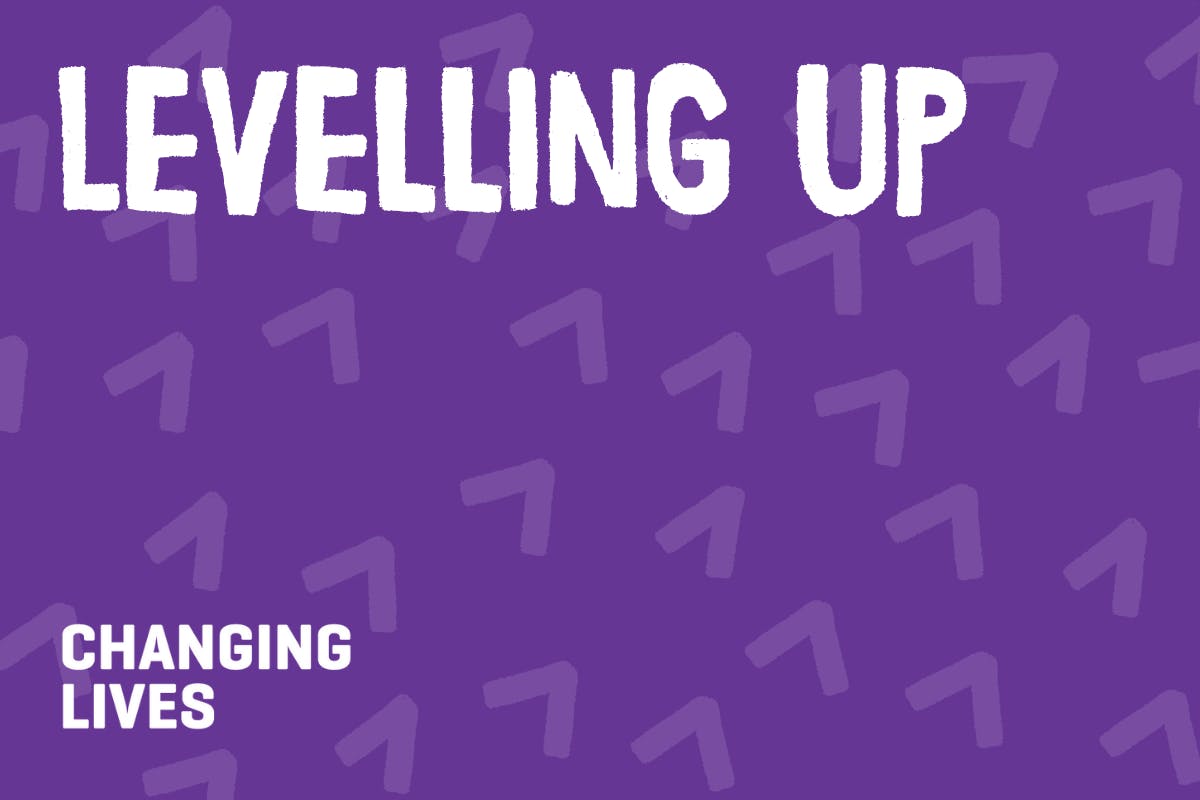In this blog, our Head of External Affairs Jennifer Harrison talks about the rising cost of living and what it means for the people we support.
In recent months, we have become increasingly concerned about the impact of the rising cost of living on the people we support - many of whom are already facing the most challenging of circumstances, including experiences of homelessness, abuse and exploitation, addiction, and long-term unemployment.
Already, we are seeing a devastating picture for many people we work with.
For example, a woman in our services explained to us that, due to the rising cost of living, she was no longer able to afford food for herself and her children. Previously, she had relied on the school breakfast club to ensure her children had a good start to the day. Now, however, she is unable even to afford the bus fare to drop them off at the school gates.
Another woman described how she is selling sex just to make ends meet.
A man in our accommodation services told us he feared he would be unable to afford a home of his own and would have to return to sleeping rough.
These are just some of the stories our teams hear daily, as the people in our services tell us that – with inflation at a record high, set against a backdrop of changes to the benefits system including the removal of the £20 uplift of Universal Credit – they are caught up in a perfect storm, often without the safety net of friends, family and a community to support them when times are tough.
Our key concerns
We’re currently conducting research across our services to understand the experiences of the people we support in greater depth. To date, we’ve engaged with 40 of our services across England, between them supporting over 4,200 people. And we are now working alongside the people we support to co-design recommendations for policy and practice.
We aim to publish our research in late July, but some of our learning is too important to wait. That’s why we are sharing our early findings now – to give voice to the experiences of people we support and shine a light on the need for urgent change.
The people we support are unable to make ends meet – and are incurring unsustainable debt as a consequence
Over four-fifths of our services said they have seen an increase in the number of people who are struggling to make ends meet, often unable to afford to buy food, pay their rent and utilities bills, or meet essential transport costs, such as travelling to a job interview or paying a bus fare to take their children to school.
Almost three-quarters of services said that the rising cost of living is causing a greater number of people to struggle with debt, leading to a reliance on high-cost credit such as payday loans, doorstep lenders and/or loan sharks. Frequently without access to mainstream banking services, the people we support are left with no option but to access perilous forms of lending.
And – worryingly – it is young people who are among the most affected, as they typically receive a lower income through benefits. Modelling from our own services suggests that a person aged under 25 who is living in our accommodation services and in receipt of Universal Credit has just £52 per month to make ends meet after paying for food and a contribution towards their utility bills. If they are faced with deductions from their Universal Credit, for example to repay an advance payment, they could be up to £13 in deficit each month.
The rising cost of living is making the challenges people are already facing more severe and creating new patterns of need.
The people we support are already facing significant challenges in their lives, but our research indicates that the rising cost of living is exacerbating these challenges for many.
Nine out of 10 of our services tell us that the rising cost of living has affected the health and wellbeing of the people who access their support – most commonly poor mental health and hunger.
Furthermore, almost two-thirds of services tell us that the cost of living has exacerbated experiences of:
· Homelessness, including sofa surfing or facing other forms of hidden homelessness, or rough sleeping. And one-third of services are supporting people who have been threatened with eviction and/or evicted for the first time.
· Loneliness and/or social isolation, relationship breakdown and loss of contact with their children – for example, where a parent is unable to travel to see a child they do not live with.
· Abuse and exploitation, including an increase in the number of people experiencing domestic abuse and/or being groomed for sexual exploitation, and/or becoming involved in ‘survival sex’, exchanging sex to meet immediate needs such as food, shelter or to provide for their children. Other experiences include criminal exploitation, cuckooing (a practice whereby people take over a person's home and use the property to facilitate exploitation) and labour exploitation.
It is becoming unaffordable for people to move on from homelessness services
At Changing Lives, we believe that a home should be for everyone. Our approach is to offer people who are experiencing homelessness a roof over their head at the earliest opportunity, at the same time supporting them to address the wider challenges in their lives.
However, the rising cost of living is making it increasingly difficult to support people to move on from homelessness. Currently, a person aged 25 or over who is in receipt of Universal Credit and living in one of our supported accommodation services is left with £96 per month after paying for food and a contribution towards their utility bills. The same person would have a deficit of £36 per month remaining if they were living in social housing, or a deficit of £63 in private rented accommodation.
The figures are even more alarming for people aged under 25. For a young person in private rented housing, this equates to a deficit of £133 per month after food and utility bills, or a deficit of up to £200 if they have Universal Credit deductions. In part, these figures are so high because a shortage of one-bedroom properties means that many people find themselves eligible for the so-called ‘bedroom tax’, resulting in a reduction in the Housing Benefit to which they are entitled.
This presents homelessness providers with a moral dilemma – faced with having to choose between helping people to keep their heads above water financially but failing to support them to move on to living independently, or supporting them to move on in the very likely knowledge that it will be unaffordable for many.
People are struggling to access support with the rising cost of living
Almost all of our services have highlighted the devastating impact of the removal of the £20 per week uplift in Universal Credit on the people we support, creating an additional challenge for people already struggling with the rising cost of living.
Yet it is proving extremely difficult for many to access support. Our services estimate that almost half of people who have attempted to access financial assistance from their local authority (for example, through the Household Support Fund, or vouchers for food and heating) have been unsuccessful.
Likewise, our services estimate that three-fifths of people who have attempted to access financial assistance from a utility provider have found themselves unsuccessful. For example, this includes energy grants and temporary prepayment meter credits.
Alongside the obvious practical implications of this for people’s personal finances, this creates a concern for our services – our teams tell us they are spending more time than ever helping people to cope with the cost of living, which reduces the time they have available to support them with their wider needs.
Where next?
Already, our research is shining a light on the experiences of people who are being pushed to the brink, priced out by the cost of living and left without the resources they need to change their lives for good. But it doesn’t have to be this way. As we continue to build our evidence base, we are calling for:
Benefits system
· Universal Credit to be uprated, at least in line with inflation, and for the rates for people under 25 to be increased to the same level as those 25 or over – with the same approach applied to legacy benefits.
· Advance payment of Universal Credit to be replaced with non-repayable starter payments, so that people claiming Universal Credit for the first time are not incurring unsustainable debt.
Financial support
· Ringfenced funding for people exiting homelessness services through the Household Support Fund, to enable them to move on affordably into independent living.
· Free and/or discounted travel for people in receipt of benefits, which will allow people to remain in contact with their families, access employment and attend essential appointments.
Funding for public services
· Appropriate funding for public services, including voluntary sector providers, to support people at a time of increasing levels and complexity of need.
We recognise there is no quick fix to the rising cost of living, but nonetheless are steadfast in our commitment to building a better future for people who are affected by poverty, discrimination, and disadvantage. We look forward to working alongside government, statutory and voluntary sector partners to achieve this aim as we navigate the road ahead.




